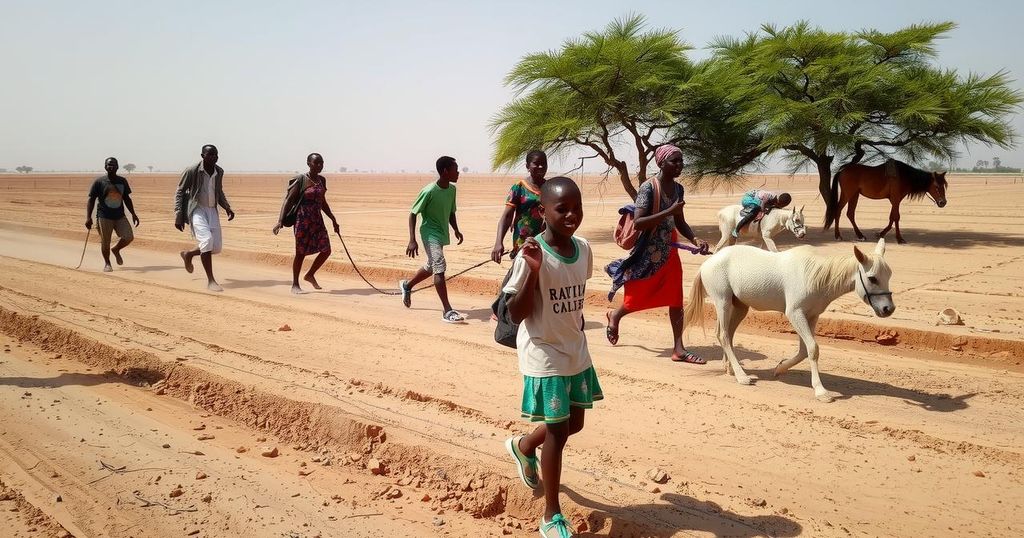This case study explores how climate change affects pastoralist herders’ migration in northern Senegal, considering both men’s adaptive strategies and the implications for women left behind. It aims to inform gender-responsive adaptation strategies based on primary data gathered from interviews with herders and key informants.
The study investigates the internal migration patterns of herders in northern Senegal as influenced by climate change. Focusing on areas within the Ferlo Reserve and their migration to the more southern Kédougou region, it highlights the intricate relationships between climate variability, herders’ mobility, and gender dynamics. Men are utilizing internal migration as a means to cope with climate-related challenges, while women, who remain in their home villages, experience unique impacts due to this trend. The research aims to shed light on these dynamics to create informed and gender-responsive adaptation strategies in response to climate-induced mobility.
This research addresses the multifaceted effects of climate change on human activities in Senegal, particularly regarding herding communities in the Ferlo Reserve. As climatic conditions deteriorate, the migration decisions made by pastoralists are increasingly dictated by environmental pressures. By emphasizing a gender perspective, the study focuses on how migration not only serves as an adaptation strategy for men but also affects the women left behind, therefore presenting a complete picture of climate-induced migration and its implications.
In summary, the findings of this research highlight the essential role of gender in understanding the impacts of climate change on migration patterns among pastoralists in Senegal. Men’s internal migration serves as a vital coping mechanism against emerging climatic challenges, yet it simultaneously creates significant challenges for the women who remain in their communities. Overall, the study underscores the necessity for gender-responsive strategies to effectively address and adapt to these ongoing changes.
Original Source: reliefweb.int







